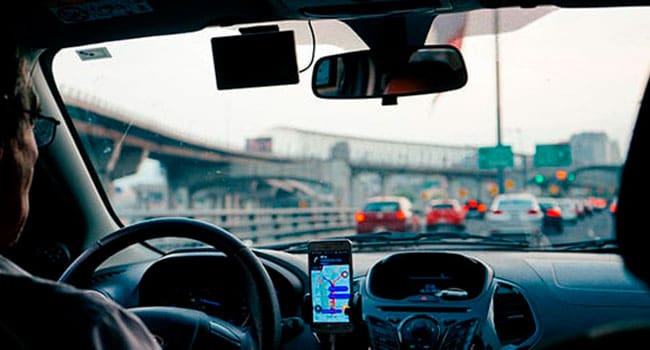 Between February 2015 and September 2016, 700 Uber vehicles were reportedly seized in Quebec – including by the provincial auto insurance Crown corporation. And the government erected more roadblocks on the ride-sharing service as some drivers were slapped with fines of more than $7,500.
Between February 2015 and September 2016, 700 Uber vehicles were reportedly seized in Quebec – including by the provincial auto insurance Crown corporation. And the government erected more roadblocks on the ride-sharing service as some drivers were slapped with fines of more than $7,500.
Although many politicians don’t like Uber, its services are popular with the public – largely because Uber tends to be much more affordable than taxis. Uber is cheaper in part because drivers spend less time driving around without a passenger. A recent study finds that UberX drivers are 50 per cent more efficient than taxi drivers in terms of passengers per miles driven.
Due to better technology and other factors, Uber cuts down on time and gasoline wasted when drivers cruise the streets without passengers.
So it’s strange that the Quebec government reacted to this gasoline-saving transportation service by seizing Uber vehicles and slapping drivers with fines to get them off the roads. And it did all this while subsidizing electric and hybrid vehicles up to $8,000 each, ostensibly to encourage more fuel-efficient transportation.
A recent Montreal Economic Institute (MEI) report estimates that electric vehicle subsidies cost the government $288 per tonne of greenhouse gas emissions abated in Quebec and $523 per tonne in Ontario, where the subsidy is larger. These calculations didn’t take into account the fact many people would have bought electric cars even without subsidies, or that electric car sales in Quebec allow manufacturers to sell higher-emission cars in other provinces because of how the federal emissions standards are designed.
The MEI estimated in 2015 that the cost per tonne of emissions abated in Quebec would be around $5,000. By comparison, the price in the carbon market is around $18 per tonne.
A better way to reduce greenhouse gas emissions, rather than using these costly subsidies, would be to permit ride-sharing services like Uber that use gasoline more efficiently.
Similarly, airline ownership restrictions, such as those in Canada, impede consumers from choosing more affordable, greener options. A foreign-owned airline that saves on fuel by organizing its flights better or by using more fuel-efficient planes might capture a sizable share of the domestic market by offering cheaper flights. Yet this opportunity for consumers to economize on price and fuel is denied since foreign-owned airlines can’t serve Canada’s domestic market. The result is higher flying costs and likely more greenhouse gas emissions.
Open markets and free trade help consumers economize on energy consumption while reducing CO2 emissions. One of the virtues of free exchange – in the market for car rides, airplane flights, internationally-produced goods or anything else – is that it enables greater productivity and efficiency. Imagine how much more energy – not to mention equipment and labour – would be needed to grow oranges and produce orange juice in Canada compared to importing the juice from Florida.
Through specialization and comparative advantage, free exchange allows people to get more output from the resources they use in production – including energy. Even without governments implementing schemes to make energy consumption more costly with taxes and bans, people have an incentive to economize on energy consumption – because energy already has a price.
Just as the price of wine forces Canadians to economize on what type they drink and the price of vehicles forces Canadians to economize on what model they buy, the price of energy – without being artificially raised – provides an incentive for Canadians to economize on consumption.
The more freely people are allowed to exchange in the economy, the greater their ability to react to existing incentives to use energy more efficiently.
Politicians should keep that in mind before they try to tax, regulate, ban and subsidize everybody into making more ‘efficient’ decisions.
Matthew Lau is a Toronto writer and a contributor to Canadians for Affordable Energy.
Matthew is a Troy Media Thought Leader. Why aren’t you?
The views, opinions and positions expressed by columnists and contributors are the author’s alone. They do not inherently or expressly reflect the views, opinions and/or positions of our publication.

